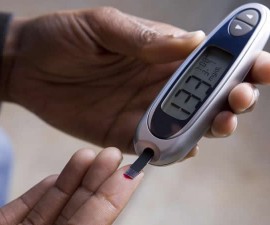When you have diabetes, then the condition of diabetes during pregnancy can be quite overwhelming. Whether you have diabetes type 1 or type 2, you need to go with the right treatments and medication if you want to stay healthy – and you make sure that your baby isn’t affected by your condition. It does take extra efforts, though, but you can enjoy the satisfying outcome if you manage to do it right.
However, there is a special condition where you may develop diabetes ONLY during the pregnancy. You have never had it before. Your health is perfectly fine and your blood sugar has always been within the normal level. However, things are about to change when you are pregnant – as your doctor diagnose you with a diabetes. Is it even possible?
Gestational Diabetes
This is a special condition that may not happen to all pregnant moms. Basically, gestational diabetes is a condition where you develop diabetes symptoms during pregnancy – and you don’t suffer from one before or even later. This condition happens when the blood glucose level increases during the pregnancy. It may seem like an uncommon condition, but it affects around 10% of pregnant moms every year in America alone.
Although gestational diabetes generally goes away after the delivery, it can affect the baby’s health. You are also exposed to the risk – you may be risky from getting diabetes type 2 later. That’s why it is important to take the right steps and treatments so both you and the baby will remain healthy.
Gestational diabetes falls into 2 classes. Those in class 1 should be able to manage through exercise and proper diet. But those in class 2 must go through a certain medication, including insulin. You will have to talk with your doctor about it.
The General Symptoms
You may not notice the symptoms directly – they aren’t exactly clearly visible. However, if you do regular screening often, you may find these symptoms:
- You urinate more often
- You feel thirsty often (and more) than the usual
- You are easily hungrier than usual – and you also eat more
How Gestational Diabetes Happens
In general, diabetes happens because of the lack of insulin. You see, when you eat, the pancreas would produce and release insulin. Insulin is the hormone responsible for moving the glucose (the sugar) from the blood to the cells. And why would the glucose move to the cells? Because your body needs to store it and use it for the energy.
When you are pregnant, the placenta produces hormones that cause glucose build up within your blood. The pancreas generally can produce and send enough insulin to deal with this issue. However, if the body doesn’t have the ability to produce enough insulin, or it simply stops using the insulin like it is supposed to, the blood glucose will increase. That’s how you end up with gestational diabetes.
There are several conditions that make you prone to gestational diabetes. Your chances of developing diabetes during pregnancy would be bigger if you suffer from these conditions:
- Your family has diabetes history – any family member suffering from diabetes
- You are overweight even before you are pregnant
- You are older than 25 years
- You have given birth to a big baby before – which weighed for more than 9 pounds
- You have suffered from gestational diabetes before
- You are an Asian, Native American, Hispanic, or African-American nativity
- You have high blood pressure – or the other medical complications
- You have a prediabetes condition. It is when the blood sugar level is higher than it should, and yet it isn’t high enough to make you diabetic
Diagnosis and Tests
This condition usually develops within the second trimester. Your doctor should check your condition between weeks 24 and weeks 28. If you have higher risk, they should do it earlier. The check may give you a glucose screening test or challenge.
In this test, you drink something (usually sweet stuff) so your blood sugar will rise. After an hour, you need to take the blood test to see how the body deals with the sugar. If your blood sugar is higher than it should be, you will have to go through an oral tolerance test. It is designed to check the blood sugar after you have gone through without food.
In the event that your test result is normal despite your high-risk condition, your doctor may perform the test again later. It is to make sure that you don’t suffer from the ailment all through your pregnancy.
The Possible Treatments
In case you suffer from diabetes during pregnancy, it isn’t the end of the world. As long as you get the right treatment, you can prevent your baby from having one. And you can also prevent yourself from suffering from it later on.
The treatments may include these ways:
- Your doctor may require you to check the blood sugar level at least 4 times a day – or even more
- They may also ask you to check your urine. They are looking for ketones, a type of chemical that shows the sign that your diabetes isn’t in a controlled state
- They may encourage you to include exercise into your daily habit or routine
- They may also ask you to manage a healthy diet and eat nutritious foods
During this stage, the doctor will monitor, track, and observe your condition, including your weight and the baby’s development. If it is considered important, your doctor may include medication (such as insulin) to make your blood sugar stay within a controlled and normal state.
Physical Activities
Although exercising is one way to combat diabetes during pregnancy, it must be done carefully. First of all, you need to remember that you are pregnant so you need to pay attention to your own condition. Remember, everything you do can affect the baby. Second, diabetes requires a careful approach so you won’t risk yourself.
Talk to your doctor to develop an exercise plan. As long as your doctor gives you a go, then you should stay active – provided that you stay within the allowed boundaries. After all, remaining active is one good way to make your blood sugar controlled. Staying fit also brings positive effect to the posture. You can also avoid common issue, such as fatigue or back aches.
Basically, you need to discuss the safe physical activity for you. Can you keep your regular workout routine (that you have before you are pregnant)? Do you need to make changes? Do you have to go with something else? These things should be thoroughly discussed with your doctor. At least, you should have a minimum 30 minutes of physical activity involving moderate and low-impact activity. It can be swimming or brisk walking. These are the safest exercises that most pregnant moms can do.
The best way to deal with the issue is to have a regular check and work together with your doctor. If you do this properly, you can go through the diabetes during pregnancy stage and come out healthy and safe – along with your baby.




